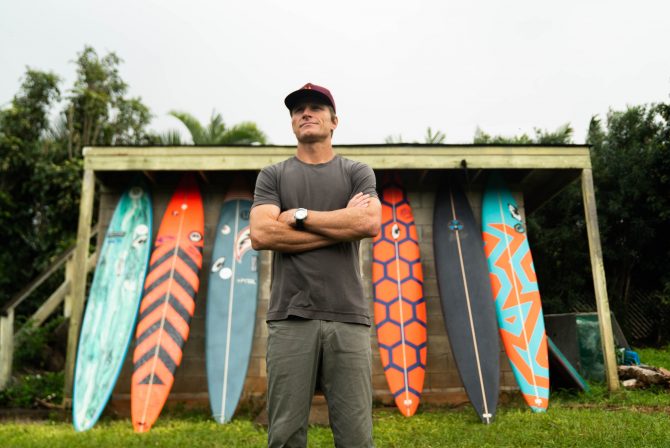
Mark Healey has some tips on fueling your body before heavy waves. Photo: The Inertia/Steele
Editor’s Note: Learn to push yourself, keep calm, and manage fear in heavy surf with Mark Healey’s Guide to Heavy Water.
At minimum, we should consider nutrition and hydration programs two to three days before a swell event (or any big form of exercise you plan to do). If you get dehydrated, it takes days for your body and cells to rehydrate.
It’s important to find good electrolytes and a magnesium intake source. Cramping is my biggest problem at the end of the day and it’s easy to get dehydrated in the water, in large part because you don’t realize when you’re sweating. I never end up drinking enough water the day of a big swell because I don’t want to leave the lineup and my adrenaline and high heart rate are burning energy like nobody’s business.
And even if I’m not surfing and just trying to do a breath hold after a big meal or caffeine, I would say my ability to hold my breath is knocked down by at least 30 percent.
Pro Tips:
–Eat easily digestible, whole foods and minimize your caffeine intake. You don’t want digestion issues when conserving energy is a priority.
–Save red meat or fish for replenishment and recovery after surfing.
–Stay hydrated to avoid cramping.
My favorite on-the-water meal is poi. It’s an easily digestible carb that sticks to the walls of your gut so it doesn’t come back up. It works for me. It’s a starch. It’s from taro. It’s a root that’s pounded into a paste. Most people say it tastes like Elmer’s Glue but the point is it works because it’s an energy source when you need one. It was my first solid food as a baby, so obviously, I’ve been conditioned to like it.

